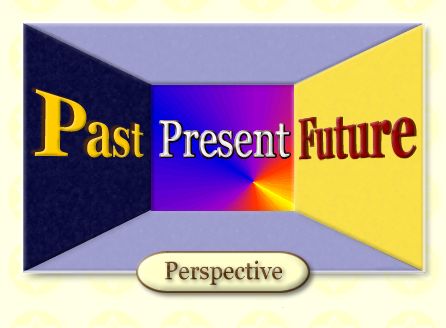Time
And Jesus said to Thomas:
'Woe to you who dwell in error,
heedless that the light of the sun which judges and looks down upon the all
will circle around all things so as to enslave the enemies.
You do not even notice the moon,
how by night and day it looks down,
looking at the bodies of your slaughters!
Nag hammadi, The book of Thomas the Contender

Time is the succession of moments. Most soberly time is distance divided by velocity as velocity is expressed in dividing the distance trough time. For static objects time is thus an expression of distance. To an extend ignoring a common speed the cultural concept of time denying distance abridging it electronically is problematic as nor distance nor the dynamics or consciousness of speed seems to be related to the concept. Thus, psychologically, time is culturally known as a conflict of identity in which the person is disoriented to the place of timing and the true time of nature's happening. The instability of the time-experience is called psychological time while the common motion of the spinning planet indicates the true of time. Cultural time is known as clocktime. The three concepts of time making up its total definition can be united in the formula Tp=Tt-Tc. In straight language: psychological time can be recognized as the product of the negative relationship, the difference, between clock-time and natural time.
Different definitions

- Vedically one speaks of trikâlika concerning the threefold of time (vedic: kâla). Normally is the past, the present and the future indicated by it, but there are other divisions associated with it: the three repetitive four-monthly seasons of the year (winter, summer and spring/autumn); the creative, destructive and sustaining of time; the natural, cultural and psychological of time; the cyclic, the linear, and the unity of the time and, more empirical and specifically cyclic, the order of the sun, the moon and the stars.
- Religiously time is the (impersonal) form of God in its totality overruling the existence of all living beings also giving order and peace being as worshipable as the Lord Himself.
- Scientifically is the term reductionistically managed dually, just referring to an absolute of measurement (electromagnetic definition: Tc) or referring to the spin of heavenly objects (the dynamic definition: Tt).
- The filognostic definition stressing the more ethereal, psychological nature of time ends the dual conflict of the scientific defenition by simply describing a practice of respect for the sake of consciousness of both the concepts of scientific time. Thus the psychological problem of time-identity is solved (see also psychological time).
- Philosophically is the time, with the temporal, by definition the constant movement of the unverse which, making difference to the place, is the moment that is always the same. Thus is there the existence of the oneness of the ethereal moment, but not the simultaneity of having the same time.
- The free energy definition of the Aeher Physiscs model stresses time as follows: '"Time" is actually spatial EM energy compressed by c2, and then removed from 3-space and placed on the time-axis where it becomes undetectable and what we call "time." If left in 3-space, the highly compressed EM energy is what we call "mass." (Tom Bearden: Taming the Fierce Energy of the Vacuum (see also part 1).
⚠ (:html:)<TABLE BORDER=1 BGCOLOR="#FFFFCC" CELLSPACING=2 CELLPADDING=12>
<TR>
<TD BGCOLOR="#FFCCCC">(:htmlend:)

The Lord of Time
In the Bhagavad Gîtâ, "The Divine Song of the Lord" Lord Krishna states the following about Time:
- B.G. 4.7-9: (7) Whenever and wherever it is sure that one weakens in righteousness and a predominance of injustice does manifest, o descendant of Bharata, at that time I do manifest Myself. (8) To liberate the seekers of truth, to take the power away from the wicked ones and to reestablish the way of the human principles, I do appear age after age. (9) Anyone who knows as such of my divine birth(s) and activities will never, after leaving his body, take birth again, but will attain Me, O Arjuna.
- B.G. 10.30: - Of the Daityas (non-theist sons of Diti who churned the ocean) I am Prahlâda, of what rules I am the Time, of the animals the lion and of the birds I am Garuda (Vainateya).
- B.G. 10.33: - Of the letters I am the first one (the A), of the compound words I am the dual one and certainly am I the eternal of Time and the Creator facing all directions (Brahmâ).
- B.G. 11.32: - The Supreme Lord said: "Time I am, the great destroyer of the worlds engaged here in destroying all people; except for you (brothers) only, will all the soldiers who are situated on both sides, find their end.
- a. I shall incarnate in every age to restore religious dutifulness and eternal values (B.G. 4:5-9).
- b. I shall carry the burden of all who depend on and trust in Me and give them peacefull prosperity.
- c. I shall save those who surrender to Me wholeheartedly and free them from the cycle of birth and death.
⚠ (:html:)<Br><Br><Br>
</TD>
</TR>
</TABLE>(:htmlend:)
See also
Links
- The Order of Time: Platform for an alternative of time consciousness
- Time quotes from the S'rîmad Bhâgavatam
- Time? - according Wikipedia.
Category: English | Definitions
Page views for this page since Dec. 14 2007:

